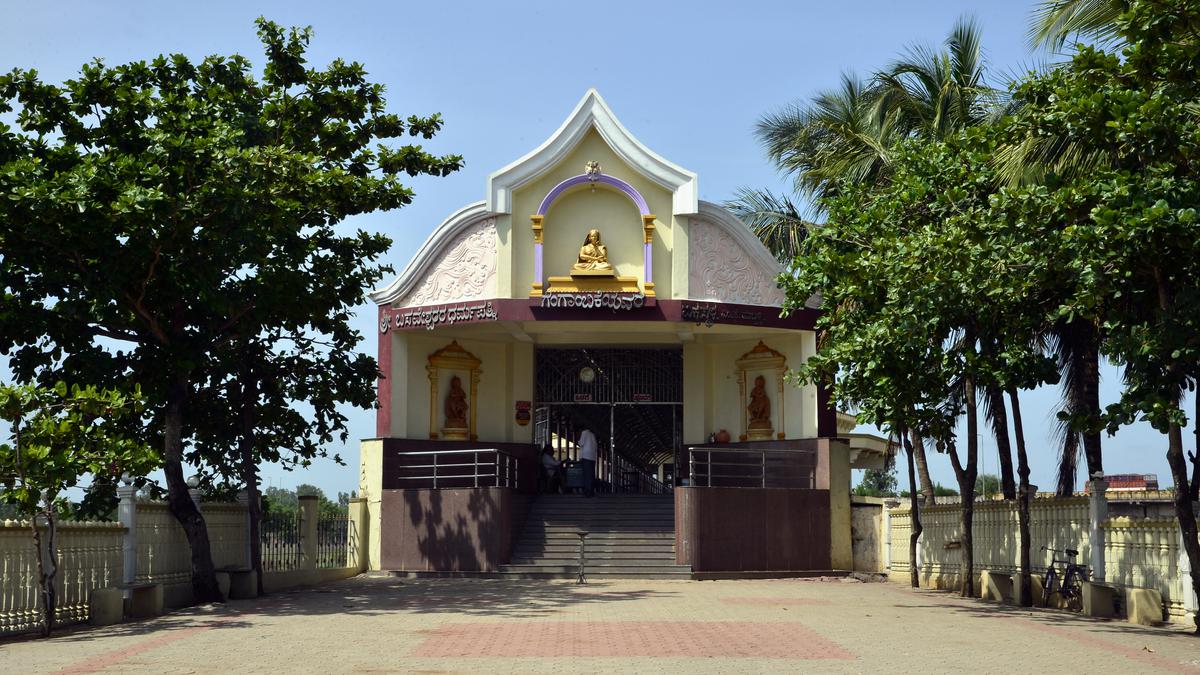
A majestic memorial for Basavanna’s trusted companion Gangambike Premium
The Hindu
Situated at around 30 kilometres from Belagav city in North Karnataka, Mugut Khan Hubli is “a small town of 12,000 souls” as the district revenue records describe it. Mugut Khan Dargah attracts a large number of believers from Maharashtra, Andhra Pradesh and other regions.
Situated at around 30 kilometres from Belagav city in North Karnataka, Mugut Khan Hubli is “a small town of 12,000 souls” as the district revenue records describe it. M. K. Hubli is nothing like the more famous Hubballi, the city of robust commerce also in North Karnataka. It got its name from a 19th century Sufi saint from Vijayapura who was also a native healer. The nomad settled in this town situated on the banks of river Ghataprabha, whose name means “a pot of sunshine”’ in Sanskrit. Mugut Khan Dargah attracts a large number of believers from Maharashtra, Andhra Pradesh and other regions.
M. K. Hubli is also among the few places in the country chosen for the interment of the ashes of Mahatma Gandhi. A small memorial is built around the site of the interment off the service road below the Bengaluru-Pune national highway. Some travelers stop to pay obeisance here. Another point of the detour is the Ashwath Lakshmi Narasimha temple on the banks of the Ghataprabha, a few kilometres off the main road.
However, the most majestic of all monuments in town is the resting place of Gangambike, wife of Basaveshwara, the 12th century reformer and saint-poet fondly called Basavanna.
The 105-feet tall cylindrical concrete structure is built right in the middle of the river. It surrounds a temple built on the riverbed. It protects the sanctum from being immersed in the water. It has a raft connecting it to the main entrance. Visitors have to climb a few stairs to enter cantilever bridge to reach the spherical dome that covers the sanctum. They can use one of the two flights of stairs to descend into the basement to reach the stone temple. The idol is an uncarved block of black stone.
Akka Gangambike, a Sharane and a Vachana poet in her own right was the daughter of Baladeva Mantri, Basavanna’s maternal uncle. She was married to Basavanna at a young age. Basavanna later also married Neelambike or Akka Neelamma, younger sister of King Bijjala of the Kalachurya dynasty of Basava Kalyan. Neelamma had a son Balasangayya, who died in infancy. Neelamma and a few other Sharanas are buried in Kudala Sangama across the river from Basavanna’s memorial.
Many feel that the contribution of Gangambike to the Kalyana Kranti (or the cultural revolution of Basava Kalyan that broke the barriers of caste and gender) is not adequately acknowledged. It is during the two-day fair held here on Makara Sankranti and the next day that huge crowds gather here. Some, however, feel that this monument itself too has not got the recognition that it deserves. “This deserves to be developed and promoted on the lines of Kudala Sangama,’‘ says G.S. Halasagi, M.K. Hubli based teacher and secretary of the Akka Gangambike Trust.











